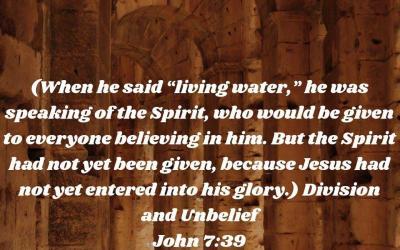Title: What Can We Learn from the Life of Enoch?
Reading: Genesis 5:21-24 (AMP)
“When Enoch was sixty-five years old, he became the father of Methuselah. Enoch walked [in habitual fellowship] with God three hundred years after the birth of Methuselah, and had other sons and daughters. So all the days of Enoch were three hundred and sixty-five years. And [in reverent fear and obedience] Enoch walked with God; and he was not [found among men], because God took him [away to be home with Him].”
Introduction
How does a life dedicated to God stand out in history? The life of Enoch, nestled in the genealogy of Genesis, provides a profound example of walking with God in habitual fellowship, reverent fear, and unwavering obedience. His life reminds us that intimacy with God transforms ordinary days into a divine legacy.
Background and Context
- Enoch lived during a time of growing human population and moral decline, as seen later in Noah’s time (Genesis 6:5).
- His name appears in the genealogy between Adam and Noah, emphasizing his unique relationship with God amid a mundane lineage.
- The birth of Methuselah, whose name means “his death shall bring,” marks a prophetic turning point, possibly signaling Enoch’s life change to deeper devotion.
Key Points
- A Life-Altering Moment
- At the age of 65, after Methuselah’s birth, Enoch’s life took a decisive turn toward God.
- Sometimes, pivotal moments like the birth of a child or a divine revelation awaken us to live with eternal purpose.
- Illustration: A young father turned his life around after the birth of his daughter, realizing the responsibility to model godliness.
- Habitual Fellowship with God
- For 300 years, Enoch consistently walked with God, demonstrating that intimacy with God is sustained over time through daily surrender and faith.
- His fellowship wasn’t passive but a purposeful, continual alignment with God’s will.
- Illustration: Like a GPS recalibrating with every step, walking with God requires constant adjustments in direction.
- Reverent Fear and Obedience
- Hebrews 11:5 commends Enoch for his faith, which pleased God. Reverence and obedience are key aspects of walking with God.
- Enoch’s faith wasn’t mere belief but active trust and submission.
- Illustration: A child holding their parent’s hand through a storm reflects trust and obedience.
- A Testimony of Divine Approval
- Enoch’s life was so pleasing to God that he bypassed death entirely, a rare testimony of God’s approval (Genesis 5:24, Hebrews 11:5).
- This shows the reward of a life wholly surrendered to God.
- Legacy Through His Family
- Methuselah, the longest-living man, symbolizes the mercy of God, as his lifespan delayed the judgment of the flood.
- Enoch’s great-grandson, Noah, found favor with God and continued the legacy of faith (Genesis 6:8).
- Illustration: A wise grandfather plants a tree under whose shade his descendants will sit, leaving a legacy of faith and provision.
Practical Applications
- Seek a Pivotal Change
- Reflect on life moments that prompt deeper surrender to God. Ask, “What is God calling me to start or change today?”
- Develop Daily Fellowship
- Commit to walking with God daily through prayer, Scripture, and obedience, recognizing that consistent fellowship transforms lives.
- Live with Reverence and Trust
- Cultivate a healthy fear of God and a heart of obedience. Let your faith translate into action.
- Consider Your Legacy
- Like Enoch, invest in the spiritual heritage of your family and those around you, influencing generations to come.
Conclusion
Enoch’s life demonstrates the beauty of a close, consistent walk with God. His legacy is a reminder that living with reverence and obedience to God can lead to extraordinary outcomes. Are you walking with God daily in faith and trust? May we strive, like Enoch, to live lives that are pleasing to Him.





0 Comments